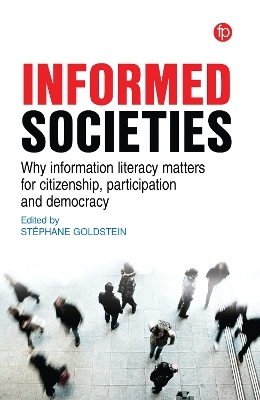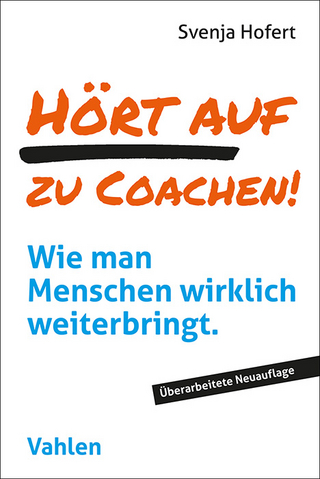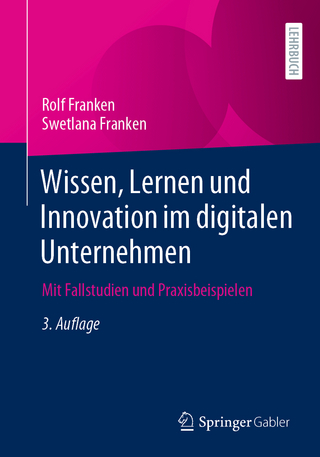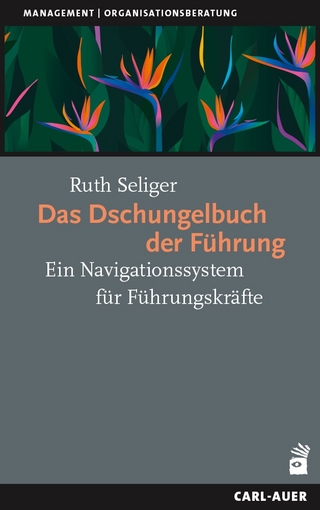
Informed Societies
Facet Publishing (Verlag)
978-1-78330-422-6 (ISBN)
In early 21st century societies, individuals and organisations are deluged with information, particularly online information. Much of this is useful, valuable or enriching. But a lot of it is of dubious quality and provenance, if not downright dangerous. Misinformation forms part of the mix. The ability to get the most out of the information flow, finding, interpreting and using it, and particularly developing a critical mindset towards it, requires skills, know-how, judgement and confidence – such is the premise of information literacy. This is true for many aspects of human endeavour, including education, work, health and self-enrichment. It is notably true also for acquiring an understanding of the wider world, for reaching informed views, for recognising bias and misinformation, and thereby for playing a part as active citizens, in democratic life and society.
This ground-breaking and uniquely multi-disciplinary book explores how information literacy can contribute to fostering attitudes, habits and practices that underpin an informed citizenry. The 13 chapters each come from a particular perspective and are authored by international experts representing a range of disciplines: information literacy itself, but also political science, pedagogy, information science, psychology. Informed Societies: Why Information literacy matters for citizenship, participation and democracy covers:
why information literacy and informed citizens matter for healthy, democratic societies
information literacy’s relationship with political science
information literacy’s relationship with human rights
how information literacy can help foster citizenship, participation, empowerment and civic engagement in different contexts: school students, refugees, older people and in wider society
information literacy as a means to counter misinformation and fake news
the challenges of addressing information literacy as part of national public policy.
The book will be essential reading for librarians and information professionals working in public libraries, schools, higher education institutions and public bodies; knowledge and information managers in all sectors and student of library and information science students, especially those at postgraduate/Masters level who are planning dissertations. Because of the topicality and political urgency of the issues covered, the book will also be of interest to students of political science, psychology, education and media studies/journalism; policy-makers in the public, commercial and not-for-profit sectors and politicians implications of information use and information/digital literacy.
Stéphane Goldstein is Executive Director of InformAll which, through research, analysis and facilitation, promotes the relevance, importance and benefits of information literacy in the library world and beyond. He is the author of reports, articles and other material on the relevance and applicability of IL to a range of settings, particularly in the context of the workplace. He is a strong advocate for IL, and as such, brokers relationships between information professionals and other stakeholders, and facilitates joint projects. He previously spent 10 years at the Research Information Network (RIN), where he led on information literacy activities; there, he was also responsible for project management and policy formulation in the broad area of information as a input and output of the research process. He previously worked in a range of science and research policy roles at the Medical Research Council and Research Councils UK.
Contents
List of figures and tables Notes on the authors Foreword — Lisa Janicke Hinchliffe Introduction — Stéphane Goldstein
1 Information literacy in the digital age: why critical digital literacy matters for democracy — Gianfranco Polizzi
2 The discourses of power, information and literacy — Andrew Whitworth
3 What intellectual empathy can offer information literacy education — Andrea Baer
4 The ‘post-truth’ world, misinformation, and information literacy: a perspective from cognitive science — Stephan Lewandowsky
5 Media and information literacy: intersection and evolution, a brief history — Jesús Lau and Alton Grizzle
6 Information literacy and national policy making — John Crawford
7 Information literacy as a growth pillar for a fledgling democracy — Reggie Raju, Glynnis Johnson and Zanele Majebe
8 Information literacy and the societal imperative of information discernment — Geoff Walton, Jamie Barker, Matthew Pointon, Martin Turner and Andrew Wilkinson
9 Libraries and democracy: complementarity in a regime of truth — Hilary Yerbury and Maureen Henninger
10 Scottish public libraries welcome Syrian new Scots: a transition from being a refugee to becoming an active part of the community — Konstantina Martzoukou
11 Information literacy, lifelong learning and the needs of an ageing population — Bill Johnston
Index
| Erscheinungsdatum | 18.09.2019 |
|---|---|
| Verlagsort | London |
| Sprache | englisch |
| Maße | 156 x 234 mm |
| Themenwelt | Wirtschaft ► Betriebswirtschaft / Management ► Unternehmensführung / Management |
| ISBN-10 | 1-78330-422-7 / 1783304227 |
| ISBN-13 | 978-1-78330-422-6 / 9781783304226 |
| Zustand | Neuware |
| Haben Sie eine Frage zum Produkt? |
aus dem Bereich


